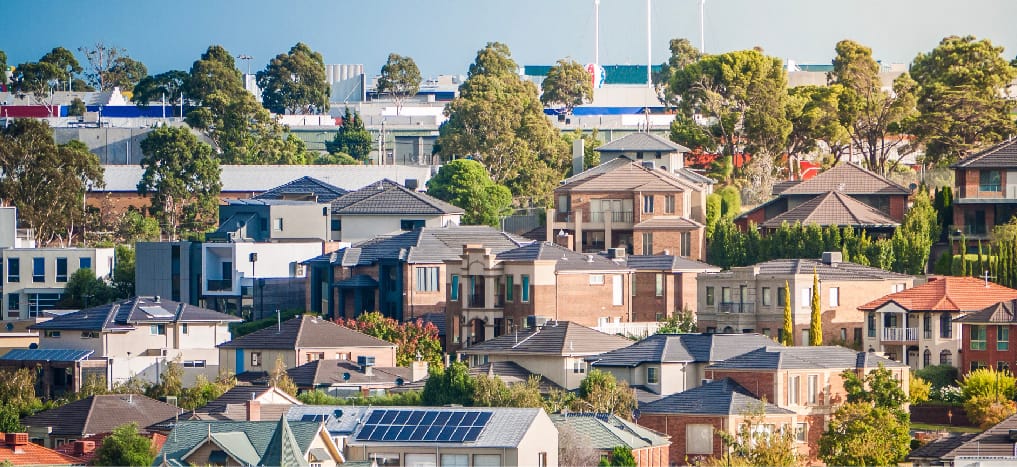How Singapore-based investors can enter the Australian property market
The Australian real estate market continues to present a compelling proposition for global investors. With a stable macroeconomic environment, a transparent legal system, and consistent institutional oversight, Australia remains one of the more resilient property markets in the Asia-Pacific region.

The Australian real estate market continues to present a compelling proposition for global investors. With a stable macroeconomic environment, a transparent legal system, and consistent institutional oversight, Australia remains one of the more resilient property markets in the Asia-Pacific region. For Singapore-based investors, the appeal lies in portfolio diversification and access to a mature, regulated market that balances yield with stability.
Investors exploring how to buy property in Australia must first understand the country’s purchasing process, the range of available investment locations, and the associated financing and tax frameworks.
This article serves as a structured guide to these elements and outlines the key strategic considerations for those buying property in Australia from Singapore.
Understanding the Australian property market (macro context)
Australia’s property market is underpinned by enduring fundamentals such as steady population growth, targeted migration policies, and continuous urbanisation.
These drivers have supported resilient housing demand across major cities. In 2025, tight rental supply remains a defining feature, pushing yields higher and sustaining investor confidence.
Institutional interest is also expanding into niche asset classes such as build-to-rent developments, logistics facilities, and new residential projects. These sectors address structural housing and infrastructure needs while offering differentiated risk-return profiles.
Currency dynamics remain an important variable. Exposure to Australian-dollar-denominated assets introduces both diversification benefits and foreign-exchange risk. Prudent investors often monitor or hedge their currency exposure against the Singapore dollar to manage volatility.
With the Reserve Bank of Australia signalling the possibility of rate cuts amid persistent housing undersupply, the medium-term outlook suggests ongoing price resilience. Nonetheless, performance will continue to vary by city, asset type, and local economic driver.

Legal and regulatory considerations for foreign investors
Foreign investors in Australia operate within a regulated framework overseen by the Foreign Investment Review Board (FIRB). Non-residents must obtain FIRB approval for most residential purchases, and such approvals involve fees and compliance obligations.
In general, new and off-the-plan residential projects are the most accessible options for overseas investors, as they contribute to Australia’s new housing supply.
By contrast, the acquisition of established dwellings faces tighter restrictions, with limited exemptions for temporary residents who are usually required to divest once they leave the country. Commercial real estate and build-to-rent projects typically offer greater flexibility for foreign ownership and can be more efficient vehicles for institutional participation.
State-based taxes also warrant close attention when trying to find the best place to buy investment property in Australia. Land tax, stamp duty, and foreign buyer surcharges vary across jurisdictions.
For instance, as of 2025, New South Wales (NSW) imposes a nine per cent foreign purchaser stamp duty surcharge and a five per cent land tax surcharge, while Victoria (VIC) and Queensland (QLD) both levy an eight per cent surcharge. These state imposts can materially influence acquisition feasibility and should be incorporated into any financial model or investment appraisal.

Financing and taxation structures
Obtaining local financing remains challenging for non-resident investors. Australian banks apply stricter credit assessments, with typical loan-to-value ratios (LVR) in the 60 to 70 per cent range and higher interest margins.
Some Singaporean banks with Australian operations may provide cross-border mortgage solutions, often simplifying administrative requirements and providing currency flexibility.
Income derived from Australian property is taxable in Australia. Non-residents are not entitled to the same tax-free thresholds as local taxpayers, and rental income must be declared to the Australian Taxation Office. Upon disposal, gains realised on taxable Australian property attract Capital Gains Tax (CGT). From January 2025, foreign resident capital gains withholding rules will tighten further, with a fifteen per cent withholding rate applied to all transactions, regardless of value.
Australia and Singapore maintain a Double Tax Agreement (DTA) that mitigates the risk of double taxation and can allow investors to claim credits or exemptions where applicable.
Nevertheless, the optimal ownership structure, whether individual, corporate, or trust, depends on one’s residency, asset strategy, and exit horizon. Professional tax and legal advice remains essential.
Best places to buy investment property in Australia
Location strategy depends on each investor’s priorities, whether focused on yield, capital appreciation, or diversification.
Sydney remains Australia’s most established market, with high entry costs but consistent long-term growth potential. Melbourne’s robust population expansion and education sector support steady rental demand, while Perth’s resource-linked economy generates cyclical but high-yield opportunities. Emerging markets such as Brisbane, Adelaide, and Hobart have gained attention for offering lower entry prices and strong fundamentals tied to infrastructure and population inflows.
Investors seeking a balance between income and appreciation may also consider exposure to industrial, logistics, or student-housing assets alongside residential holdings. A diversified portfolio across regions and asset types can mitigate cyclical risk and enhance overall stability.

Routes for Singaporean investors to enter the market
Singaporean investors typically access the Australian market through three broad avenues.
- The first is direct purchase, which provides full ownership and control but demands substantial capital and personal management oversight.
- The second route involves co-investment or syndication models, which pool resources among multiple investors but require rigorous due diligence on both partners and underlying assets.
- The third is fractional ownership through regulated platforms such as RealVantage, allowing investors to participate in institutional-grade properties with significantly lower entry capital while delegating asset management responsibilities to professional operators.
Key risks and mitigation strategies
Like all property investments, exposure to Australian real estate carries inherent risks.
- Currency fluctuations between the Singapore and Australian dollars can erode returns if left unhedged.
- Shifts in foreign-investment policy, such as revised FIRB conditions or state tax changes, may affect profitability.
- Market cycles of expansion and correction remain a natural part of real estate performance, making diversification and disciplined leverage management critical.
- Direct property holdings also lack liquidity, so investors should plan for longer holding periods or consider fractional and co-investment structures to enhance exit flexibility.
Where RealVantage fits in
RealVantage offers Singaporean investors an accessible route into the Australian property market.
The platform curates and manages professionally vetted opportunities across key cities including Sydney, Melbourne, and Brisbane, spanning residential, commercial, and specialised sectors. Each deal undergoes rigorous and comprehensive due diligence, incorporates clear exit strategies, and benefits from ongoing asset-management oversight.
By consolidating sourcing, legal compliance, and operational management, RealVantage reduces the capital and administrative barriers associated with direct ownership.
The firm operates under a Capital Markets Services licence issued by the Monetary Authority of Singapore (MAS), ensuring governance standards and investor protection consistent with regulatory expectations.
Take your first steps into Australian property investment
Investing in Australian property from Singapore can deliver both diversification and long-term value creation, but success depends on informed decision-making. Understanding the market’s structural dynamics, regulatory requirements, and tax environment is essential before committing capital.
Whether through a direct acquisition or via a managed fractional platform such as RealVantage, investors should align each decision with their risk appetite and strategic objectives. With robust diligence and professional guidance, Australian real estate can serve as a cornerstone allocation within a well-balanced global portfolio.
Sources
- Australian Bureau of Statistics, Population and Housing Data, 2025
- JLL Australia, Real Estate Outlook Report, Q1 2025
- Reserve Bank of Australia, Monetary Policy Statement, August 2025
- Australian Treasury, Foreign Investment Review Board Guidelines, 2025
- FIRB Annual Report, 2024–2025
- KPMG Australia, Tax News Flash: Increased Foreign Property Investor Surcharges in NSW, June 2024
- Revenue NSW, Surcharge Land Tax and Stamp Duty Guidance, 2025
- Australian Banking Association, Non-Resident Lending Policies Overview, 2025
- Grant Thornton Australia, Client Alert: Changes to Foreign Resident CGT Withholding, April 2024
- Australian Taxation Office, Australia–Singapore Double Tax Agreement Overview, 2025
- CoreLogic, Australian Property Market Review, Q2 2025
- Monetary Authority of Singapore, Capital Markets Services Licence Register, 2025
About RealVantage
RealVantage is a leading real estate co-investment platform, licensed and regulated by the Monetary Authority of Singapore (MAS), that allows our investors to diversify across markets, overseas properties, sectors and investment strategies.
The team at RealVantage are highly qualified professionals who bring about a multi-disciplinary vision and approach in their respective fields towards business development, management, and client satisfaction. The team is led by distinguished Board of Advisors and advisory committee who provide cross-functional and multi-disciplinary expertise to the RealVantage team ranging from real estate, corporate finance, technology, venture capital, and startups growth. The team's philosophy, core values, and technological edge help clients build a diversified and high-performing real estate investment portfolio.
Get in touch with RealVantage today to see how they can help you in your real estate investment journey.
Disclaimer: The information and/or documents contained in this article do not constitute financial advice and is meant for educational purposes. Please consult your financial advisor, accountant, and/or attorney before proceeding with any financial/real estate investments.

